From Cave Paintings to Artificial Intelligence: The Evolution of Access to Information
A short story on how access to information enabled some of the most important revolutions in history.
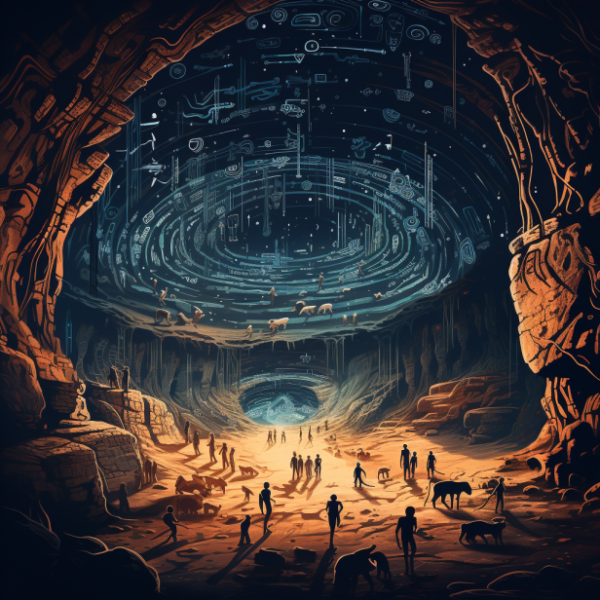
The Story of Knowledge
The story of humanity is one of knowledge. The ability to acquire, process, and share information has driven every significant leap forward in our journey. This narrative, from primitive drawings to artificial intelligence, is the story of how access to information has been an enabler of the most important revolutions in history. In today’s data-rich era, we are pioneering the use of AI to navigate the vast oceans of information, democratizing data-driven decisions and propel us towards the next revolutionary era. Here is the story of how it all started…
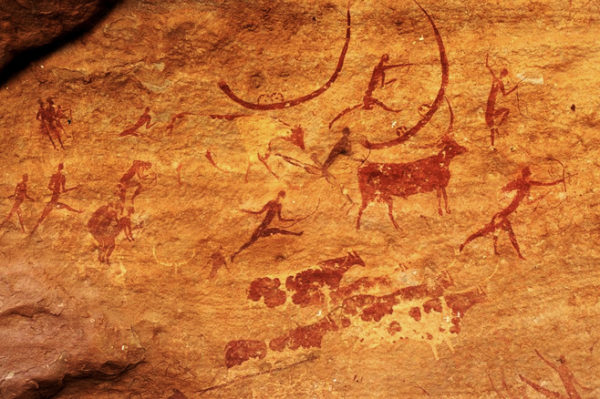
Cave paintings estimated to be from 3000 BC. Photo Credit: Bradshaw Foundation
Prehistoric Communication Through Drawings
Long before the dawn of alphabets or hieroglyphs, the first humans were already making waves in information sharing. Our spirited ancestors found their first ‘loudspeaker’ in the form of cave walls, voicing their life experiences through intricate drawings. These caves, like the famed Lascaux in France, tell stories of their hunts, strategies, and triumphs, paying subtle homage to the creative sparks that ignited humanity’s journey. More than an artistic endeavor, it was their earliest user manual, a survival guide etched in stone! This artful ledger enabled them to plan hunting strategies, transforming their societies. Hunt strategies grew savvier; greater game fell. These prehistoric Da Vincis reveal a powerful truth: When we share information, our survival doesn’t just depend on the fittest but the smartest. Innovation was in our DNA right from the start!
The Development of Speech and the Agricultural Revolution
The script of human progress took a dramatic turn when our cave-dwelling ancestors discovered the power of speech. Exchanging grunts for words, they unlocked a new world of storytelling and knowledge sharing. Suddenly, there was warmth around the hearth, not just from the fire but shared wisdom. Oral transmission of information fostered community bonds and became the fuel for the next revolution: Agriculture.
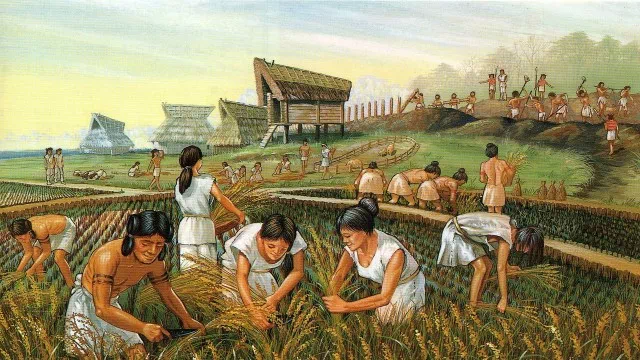
The agricultural revolution. Photo Credits: Geography.name
Whispered secrets on seed sowing, animal rearing, and weather patterns began to circulate. The once roaming hunters gradually rooted themselves as farming communities. This transition from wandering hunter-gatherers to settled agriculturists was no small feat. It was enabled by the ever-evolving access to structured information transfer, demonstrating yet again how pivotal information is in shaping the course of humanity. The spoken word became the new parchment carrying forward the tale of progress, sowing the seeds for the civilizations yet to sprout.
The Rise of Civilization and Written Language
The true marvel occurred when humans figured out how to immortalize their words through written language. Hieroglyphs in Egypt and cuneiform signs in Sumer breathed life into stone, making silent rocks speak tales of battles, bounties, and beliefs. These scribbles, symbols, and strokes were more than mere markings—the seeds of civilization were sown on these tablets.
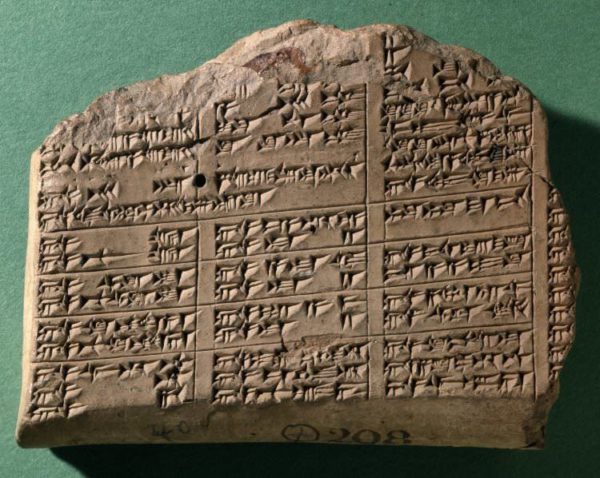
The cuneiform writing carved into clay tablets, created by the Sumerians around 3400 BCE, is one of the earliest forms of writing and signifies the start of civilization. Photo Credits: World History Encyclopedia
Recording information transformed how societies functioned. This wasn’t just storytelling anymore, but also record-keeping, mapping territories, formulating laws, and more. Written language made the preservation and dissemination of information possible, even long after the scribes had returned to dust. The fragile whispers around the fire took a more solid form, blossoming into civilizations and societies with each etching. The story of humanity found its first chroniclers, celebrating the indomitable spirit of human ingenuity and their relentless pursuit of knowledge. The pen thus became the yoke directing the course of human progress.
The Invention of Paper and Knowledge Dissemination
While words and symbols gave knowledge a permanence, it was the Chinese invention of paper that gave wings to information. This humble creation triggered an avalanche of knowledge dispersal, so powerful that it could be felt across continents. Like a migratory bird taking flight, information transcended borders and cultures on the back of these elegant paper sheets.
Paper made knowledge more durable, portable and above all, more accessible. It was the newest plane ticket, carrying views, news, and hues from the observed world. It became the canvas where science was birthed, philosophy pondered, and arts envisioned. The statue was no longer just in the plaza, the star no longer just in the sky – they could be in your hands, within sheets of paper.
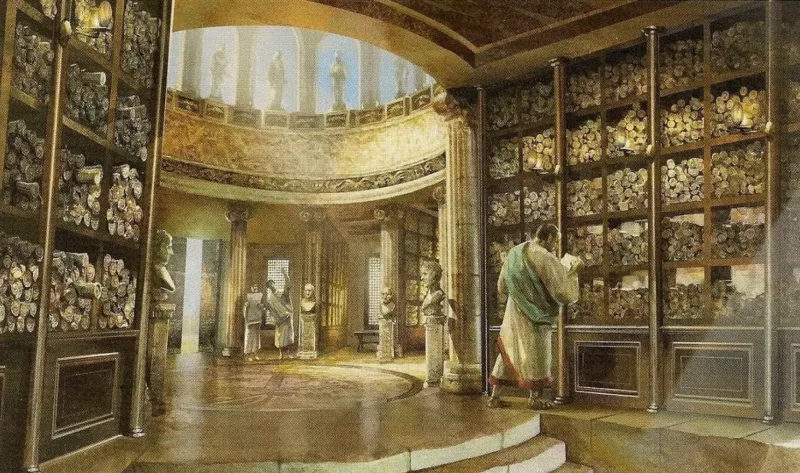
The Library of Alexandria, known for its vast collection of texts, was eventually destroyed, with fire playing a significant role in its demise. Photo Credits: short-history
But the special pages of these books opened only for the privileged. Libraries like the majestic Library of Alexandria stored monuments of knowledge, but such knowledge remained inaccessible to most. The delicacy of paper, combined with the tedious hand-copying, meant books were scarce, expensive, and easily lost to time, fire or decay. This exclusivity slowed down the rate at which knowledge could spread.
The Middle Ages and The Manual Copying of Texts
After the fall of the Library of Alexandria, knowledge became as secluded as a hermit in the wilderness. During the Middle Ages, much of the surviving knowledge retreated behind the stoic walls of Monastic libraries. Monks in scriptoriums became the unsung heroes of this era, lending their days and nights to the painstaking task of copying texts by hand. Those heavy scrolls and parchments, filled with divine teachings and classical wisdom, would not have survived the tide of time but for these diligent scribes.
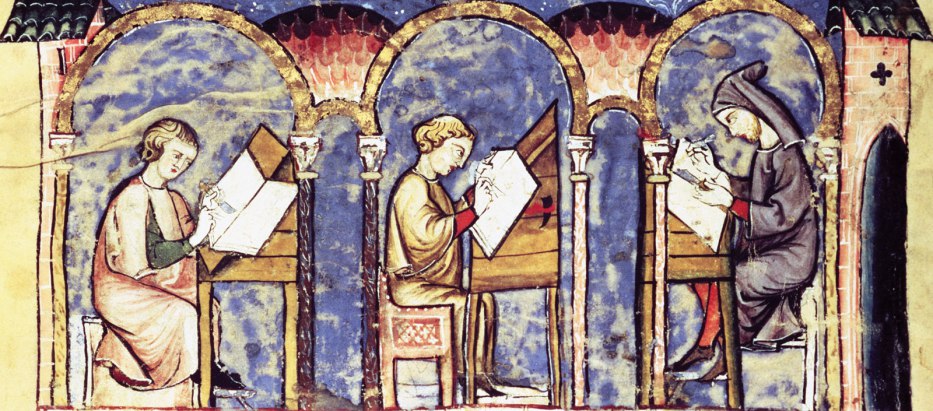
Monks carefully copying documents, working as key protectors of knowledge in the Middle Ages. Photo Credit: Dartmouth.edu
They not only saved the last bits of written prose and poetry from extinction but also multiplied them for posterity. The religious texts were carefully copied, the knowledge preserved, the wisdom shared within their circles. But it was still not quite enough. The lack of a broader dissemination meant that these precious words were trapped in a ‘knowledge bottleneck’.
Whilst Latin was the lingua franca of these religious scholars, it was unfamiliar to most. The majority of the population were effectively cut off from this wealth of knowledge. The copies were reserved for the church, the elite, and the learned. As informative as these texts were, their sphere of influence was incredibly limited.
As the Middle Ages drew to a close though, rumors of a radical invention would soon pave the way for an explosion of knowledge sharing unlike anything seen before – the Gutenberg Printing Press.
The Printing Press and The Acceleration of Knowledge Sharing
Enter Johannes Gutenberg, the wizard of his time, wielding his mighty invention – the printing press. Suddenly, the power of quantum leaps wasn’t just bounded to the cosmos. Humanity’s knowledge could now be replicated faster than ever. Gutenberg’s ingenious machinery didn’t just print books; it printed revolutions.
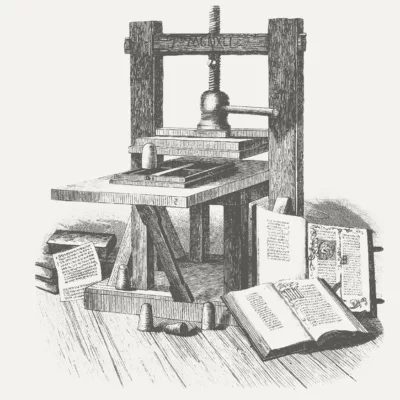
The Gutenberg Printing Press could produce around 3,600 pages per day, majorly improving book production and distribution. Photo Credit: koine-greek.com
Imagine this! With this high-speed text-machine, information finally broke free from the grip of the rich and powerful, and made its way to everyday people. Texts, that were once counted, could now be printed in the thousands. The uniqueness of a doctrine was its downfall – singled scrolls transformed into a collection of books. Knowledge was no longer a private party but a carnival that everyone was invited to.
As books became affordable and plentiful, they lit the torch of curiosity in the minds of common folks. Ideas travelled faster, minds opened wider, and the societal fabric started weaving a whole new pattern. Mathematical books were not just the monks’ whispers in Latin; they were available in every language, in every corner. And well, the rest, as they say, is history. The birth of the Scientific Revolution was marked with Copernic’s De revolutionibus orbium coelestium and Galileo sealing his observations into immortal texts. The actual stars might be distant but the science of stars was no longer afar.
Just as the manual texts were surviving sparks from the Library of Alexandria’s ashes, Gutenberg’s press was the wind that blew these sparks into a wildfire, setting ablaze a world ravenous for knowledge. The printing press was more than an invention; it brought a fresh wave of information and ideas. It was the beginning of an information era that still continues, powering change as it evolves.
The Information Age and Digital Revolution
Fire up the engines! We’re zooming into the modern era, where ‘change’ is the new normal. Peeping into the tunnels of time, we see Alexander Graham Bell saying those revolutionary words into his telephone, “Mr. Watson, come here, I want to see you.” This was not just an invitation to his assistant; it was a calling to the future where information would start travelling invisibly at breakneck speeds!
And then came computers and the magical weave of the World Wide Web, transforming our planet into a global village, giving birth to the Information Age. The Internet didn’t just connect computers; it twined societies, cultures, thoughts, and dreams. And, let’s not forget the wizards facilitating these connections – search engines that became our guides in the digital maze.
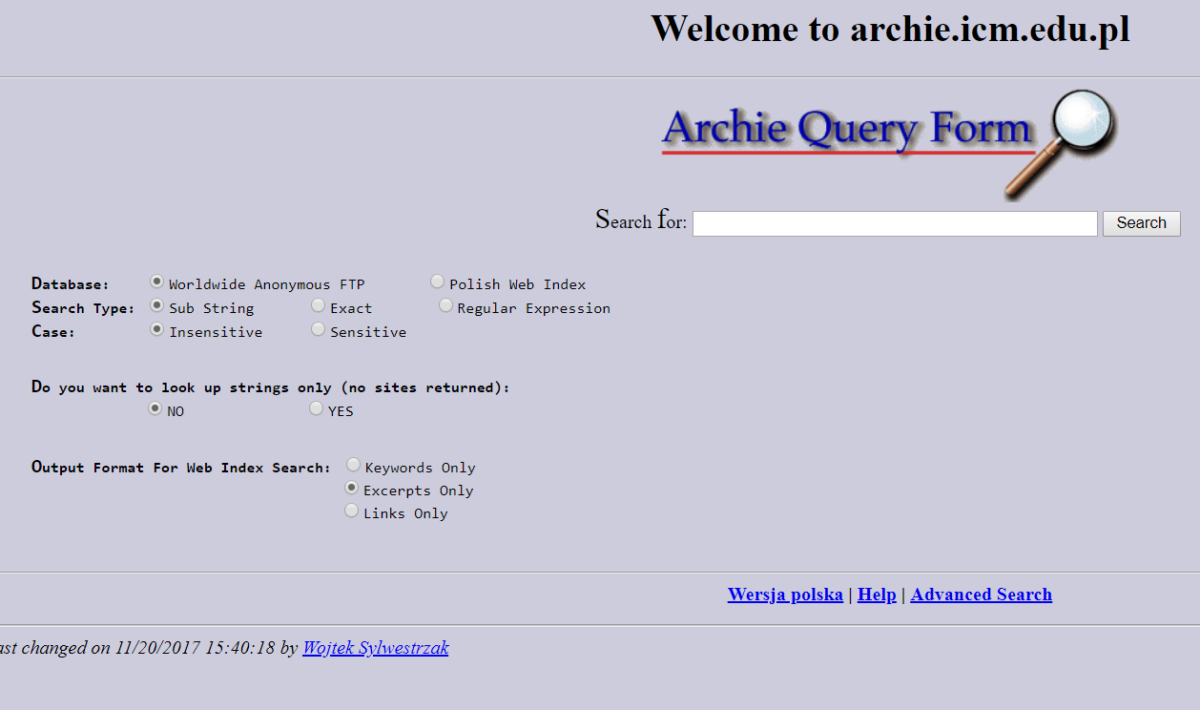
Archie, made in 1990, is recognized as the first search engine, laying the foundation for modern ways to search on the internet. Photo Credit: seomechanic.com
And, just wow! Information storage became digital. Imagine going from heavy papyrus scrolls and printed texts to holding a library worth of information on a chip barely the size of a crumb. The technological march didn’t stop here. It skipped, hopped and jumped towards an era where a single click could dish out a platter of data served hot and ready to consume.
Yet with all great leaps come new hurdles. And digital revolution, my friend, brought its fair share of challenges. An avalanche of information – spectacular yet overwhelming. But fear not! Just like man learned to tame fire and wild streams, we are learning to navigate this information deluge. The guiding light in this journey is AI. The hand that transforms overwhelming information into manageable intelligence. Hold tight, my friend, the journey is still soaring upwards.
Artificial Intelligence and the Next Revolution
So, we’ve arrived at an intersection in our journey where the present meets the future. Welcome to the Age of Artificial Intelligence, where the magic of ones and zeros is reshaping our world. Remember those frightening mountains of data we talked about? Well, get ready to see AI as the sherpa guiding us through this rugged terrain, turning esoteric terminologies into a comprehensible roadmap.
Think of AI as that enthusiastic librarian who can instantly pull up the book you need, even when you barely remember its title. It brings order to chaos, creating invisible threads that interlink formidable amounts of data, stitching together a vibrant tapestry of insight.
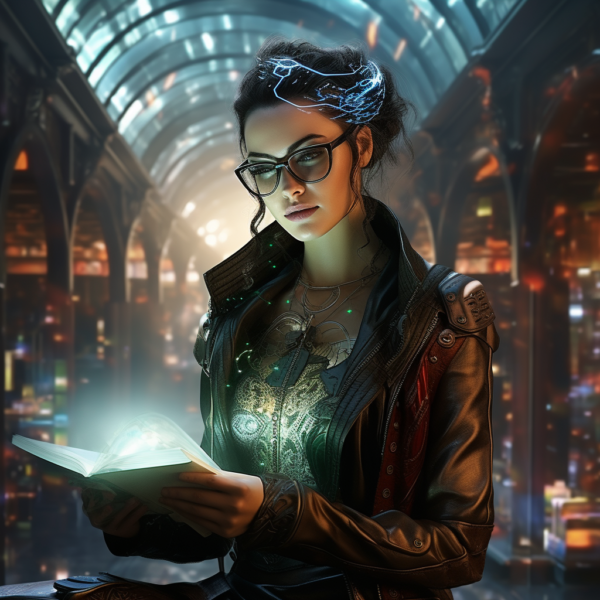
"The Librarian," an AI character from Neal Stephenson's "Snow Crash," assists the protagonist with a wealth of information within the novel's Metaverse.
While the early stages of our journey were about the creation and storage of information, we’re now venturing into an era where extracting, evaluating, and employing this information efficiently is the driving force. It’s no longer just about having access to data, but about making sense of it all.
So here we stand, with AI as our guiding light, poised to tackle the challenge of information overflow head-on. As we sail these uncharted waters, AI is empowering us to weave stories from scattered data, glean fresh insights, and make data-driven decisions. The possibilities? Endless. The adventure? Just getting started. Ladies and gentlemen, fasten your seatbelts, because this revolution is running at warp speed!
Democratizing Data: A Journey Towards Insightful Decisions
At the heart of our quest at Veezoo is the desire to bring data to everyone’s fingertips, making it an accessible and valuable tool for decision-making. We’re passionate about gleaning meaningful insights from the vast volumes of data collected daily. We recognize the potential that lies untapped in rows and columns of numbers, waiting to be transformed into strategic insights.
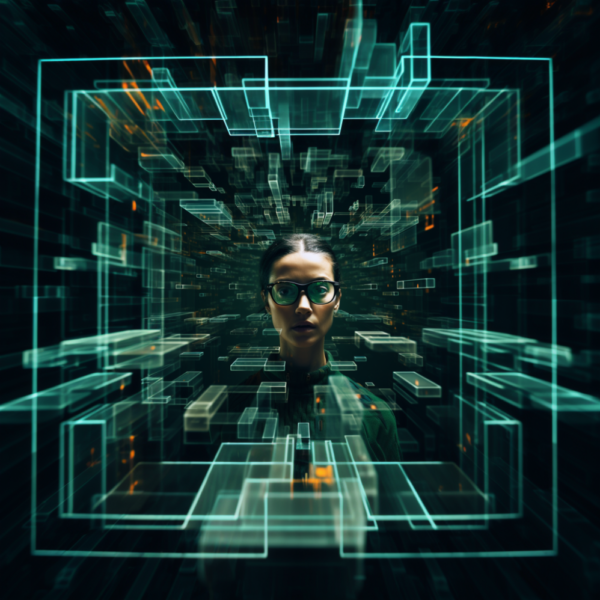
The Librarian, looking through thousands of databases to find insights that will help you in your next business decision.
Our team is driven by the vision of making the inaccessible, accessible and the complex, simple. With machines learning to comprehend human language, we stand at a remarkable turning point in history. We’re utilizing this power to transform how businesses interact with data, making it as simple as conversing with a friend.
We truly believe in the democratization of data. To us, that means not only presenting data but doing so in a way that empowers our users to engage with it meaningfully.
We’re committed to contributing to this ongoing revolution, bridging the gap between information overload and insightful decision-making. Together, we’re becoming the torchbearers of a data-driven era, translating binary code into the universal language of progress. It’s not just about navigating the data ocean anymore; it’s about sailing smoothly, reaching our destination, and making a difference. After all, in our interconnected world, every single decision counts!
What is next?
As we look towards the start of this exciting new period, we can’t help but appreciate the path we’ve taken – from simple cave paintings to the impressive complexity of artificial intelligence. Every step has built on the one before, creating a pattern of progress fueled by our unstoppable desire for knowledge.
As we continue this ongoing large saga, our goal is to write the next part, not just in computer language, but with the impacts we make, the decisions we support, and the progress we drive. We’re as committed as ever to helping groups find their way in the complicated world of data, making sure that making decisions based on data isn’t only for the privileged but a right for everyone.
Our shared journey through this age of information is far from done. In fact, every new day makes it even more interesting. As we use the power of artificial intelligence, we’re not just changing how we find information; we’re changing the whole world, one piece of data at a time. The past was written with charcoal and ink; the future certainly seems to be written in computer language. It’s an exciting time to be alive!



